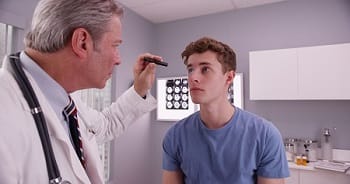Are traumatic brain injuries treatable?
A traumatic brain injury is not something that can be healed, but there are therapy treatments which may help.

People in Roanoke live active lives. They engage in contact sports, drive faster vehicles, operate off-terrain vehicles and run or bike along busy roadways. While these activities can bring great enjoyment, they are often not without some form of risk. A negligent or drunk driver may run into them, a mechanical defect may cause them to crash, or rough weather conditions may create a dangerous roadway.
The Centers for Disease Control and Prevention reports that motor vehicle crashes are found responsible for 14.3 percent of all traumatic brain injuries in the U.S. While broken bones, bruises and cracked ribs may heal over time, a TBI is one of the most difficult injuries for doctors to care for as their choices are limited.
Stabilization and monitoring
The National Institute of Neurological Disorders and Stroke states that once the brain has been damaged, the most important task for doctors is to make sure that more damage does not occur. This is done by stabilizing the patient and running x-rays to check for damage to the spine or bones in the neck and head. A change in a person’s blood flow, oxygen flow to the brain, breathing or blood pressure can also be a warning sign of further damage.
The additional damage is referred to as a secondary injury. According to the Model Systems Knowledge Translation Center, a secondary injury can occur if the brain tissue begins to swell up or the brain is not receiving enough oxygen to function properly. This secondary injury may not happen for a day or two so all doctors can do is monitor the person’s condition for any changes. Surgery or self-induced comas are two options that doctors have if the additional brain damage is occurring.
Assessment of symptoms
Once the patient is stabilized and the threat of a secondary injury is over, doctors can then begin to assess the damage caused by the TBI. The Brain Injury Association of America states that these symptoms vary from patient to patient, the force of the blow, previous health issues, age and the location of the damage. If, for instance, a person has suffered a TBI in the temporal lobe, that person may struggle with memory issues, organization of thoughts or information, hearing, and understanding language. A person who suffers a TBI in the frontal lobe may experience personality changes, struggle with speaking, show a lack of judgment or be unable to control behaviors.
The next step is to put together a specialized treatment plan to help that person regain some of their former abilities. This can include physical therapy, speech therapy, psychological treatment and emotional support. The expenses for the care of someone in Roanoke, who has suffered this type of injury due to a negligent company or person can be difficult to project. Victims and their families may want to seek legal counsel.
